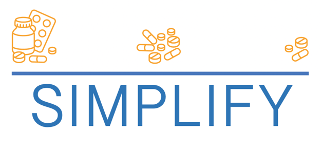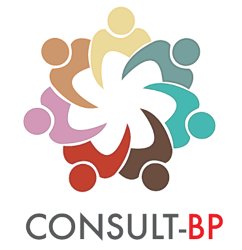Research
Our funded projects focus on two major areas: (1) optimizing medication use with goal concordant prescribing and deprescribing in hospice and palliative care; (2) equity in healthcare delivering, including addressing structural racism and implicit bias on care delivery.
Goal Concordant Prescribing and Deprescribing
Many patients in hospice are prescribed an average of 10-12 medications daily and have progressively declining organ function that increases their risk of drug-related harm. Furthermore, many take questionably beneficial medications until death while simultaneously being prescribed an increasing number of symptom management drugs. This changing combination of medications contributes to stress and confusion for family caregivers who are responsible for their management and administration.
Projects
Shared Medication Planning In Home Hospice (formerly called ‘SPECTORx – Standardized Patient-Centered Medication Review’)
Growing evidence suggests that, for medications in late life, less is more. For example, a recent trial lowered medication burden by safely discontinuing statins in hospice-eligible patients, and potentially benefited patient well-being as a result. However, translating such evidence into practice is challenging, and requires a person-centered, medication management approach that regularly reviews, aligns and simplifies treatment regimens with patients’ goals of care as their illness progresses.

Making Goal-Concordant Prescribing Training Scalable (Ariadne Labs)
Our overall objective is to transform our novel, NIH-funded (R21 AG060017), 3-step "Review, Align and Simplify" approach to clinician-guided, patient-centered, goal-concordant prescribing into a replicable and scalable tool for front-line clinicians. We propose to harness Ariadne’s expertise in human-centered design and scalable solutions to accomplish this goal.
Equity in Healthcare Delivery
Disparities in health care delivery and outcomes can be understood within the context of inequities in societal institutions. Systematic discrimination is not the aberrant behavior of a few but is often supported by institutional policies and implicit bias based on negative stereotypes. Effectively addressing disparities in the quality of care requires improved data systems, increased regulatory vigilance, and new initiatives to appropriately train medical professionals.
Projects

CONSULT-BP (COmmuNity-engaged SimULation Training for Blood Pressure Control)
The major goal of this project is to develop and test an community-engaged “awareness, exposure and skill-building’ intervention program to mitigate implicit race bias and improve providers’ interaction skills with patients from marginalized populations.
Equitable Caregiver Engagement in Serious Illness
An estimated 12 million US adults are living with serious illness, a condition that carries a high risk of mortality and excessively strains their caregivers. Structural racism and racial/ethnic residential segregation may affect health care for patients with serious illness by limiting access to palliative care, the specialty focused on improving quality of life for persons with serious illness and their families and limiting the capacity of family caregivers to engage with the healthcare system. We will conduct at population-based, multi-level, mixed-methods study within and across the state of Massachusetts to disentangle the relationships between residential segregation, neighborhood deprivation, and healthcare utilization in serious illness.